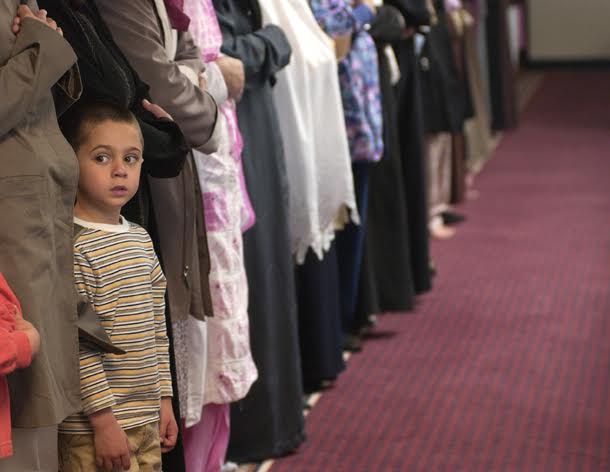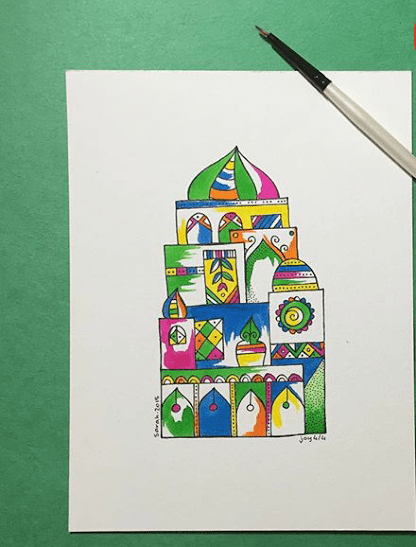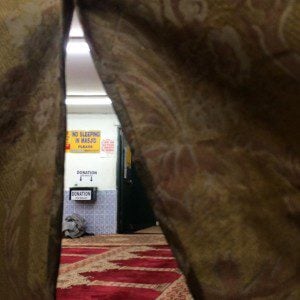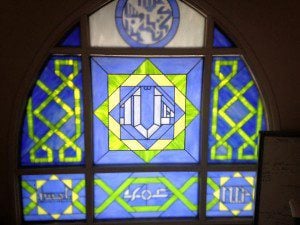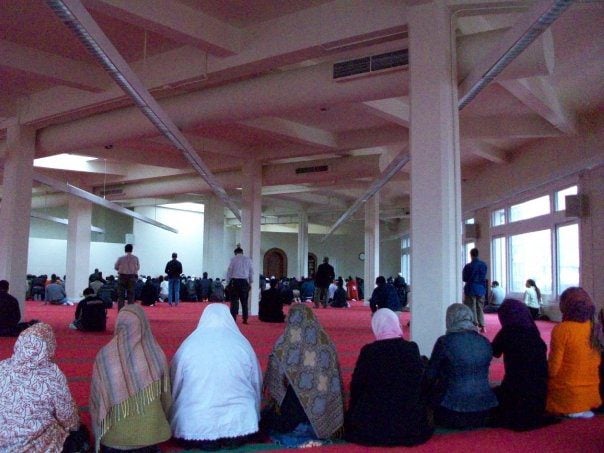This is Day 6 of Hindtrospectives’ #MyMosqueMyStory series for Ramadan 2015
By Amanda Quraishi
A couple weeks ago I attended a pre-Ramadan Open House at the mosque closest to my house. It’s an annual event, and my family has attended for the past few years along with dozens of other Muslims from our city to host non-Muslim guests (including local dignitaries). The event features a lecture about the meaning of Ramadan, a Q&A session with a panel of Imams, an opportunity to observe Muslims in prayer, and of course, dinner.
As I sat this year in the large multi-purpose hall of the mosque in a mixed-gender setting, listening to a cross-section of outstanding Muslims from my community talk about Islam and answering questions, my heart felt like it would burst. I was so proud of us, and of what we’ve become. That feeling of being in love with my community is something I am truly thankful for these days.
*****
Fifteen years ago I embraced Islam and at that time our Muslim community in Austin, Texas was completely different from what it is today. In fact, I would hesitate to even call it a community. We had a couple poorly managed mosques. Our people were disorganized and unsophisticated; there were very few (if any) programs to address practical needs of converts, women, children or people with special needs.
As a new convert, my first visits to the mosques in town were traumatic. I understood little of what was being said or done, knew few people, and spent the entire time being stared at and feeling extremely visible and uncomfortable. The people who did try to ‘help’ me would end up overwhelming me with do’s and don’ts. After a couple years of trying to fit in to mosque culture, I gave up.
After that I spent almost ten years not going to a mosque at all. Instead, I got comfortable with a group of Pakistani Muslim families I knew through my husband, and we became our own support system. We spent holidays and birthdays together in our homes. We’d gather on Eid for a picnic and to let our kids exchange gifts. It was an exclusive group, based as much on culture and friendship as on shared faith. Then, as I grew more socially conscious and politically active, I began to make friends with Muslims who shared my interests. We would meet at local events or in homes, and work together in outside the mosque on various projects.
I could probably spend the rest of my life not going to the mosque ever again and still feel pretty good about my Muslimness. I’ve found a multitude of ways to be in community with Muslims without having to go to the mosque and exposing myself to strangers who stare at me and ask me probing questions; or being required to sit behind an ugly barrier, separated from the majority of other worshipers because of my body parts. I could only listen to Khutbahs online that I know I will personally agree with, and continue celebrating and working with other local Muslims in various forums outside the mosque.
*****
Two years ago, I decided it was time for me to re-mosque myself. Not because I felt that I was lacking something in my life, but because I realized that my community was missing something important: it was missing me.
Over a decade of being unmosqued I had effectively created an echo chamber for myself, made up of people I liked and agreed with. And I was satisfied with that. But the greater Muslim community is actually not made up of people like me. In fact, I’m very different from most people in my community, by virtue of being white, a convert, and very progressive (socially & politically).
Even though I often still feel uncomfortable going to the mosque, I am much stronger as a person than I was when I first converted, and far more secure in my Muslim identity. The staring still happens, and the probing questions. The barriers are still up in most of our mosques (we now have seven mosques in our city), and I often cringe at things said during khutbahs. But I know that when I am not there representing myself, our community less rich and diverse.
I’d definitely like to see some things change at the mosque, and I think they will in time. When I started going back and getting involved with the greater Muslim community again, I was delighted to find out how much had changed for the better in my absence. Young families and young professionals had moved in, willing to devote time and energy into building resources and support systems. I found a more tolerant, open attitude and noticed more diversity.
But even if nothing changes, I’ve come to realize how important it is that I go there to hold my own space. I am part of this community regardless of whether other people like or appreciate it, and I should remain visible; a reminder that we are not all the same. This is a challenge, but Alhamdolillah, I think I’m finally up to it. Yes, I know some people won’t like or agree with me on things, in the same way that I am often rubbed the wrong way by what others say and do. But community isn’t about everyone agreeing on everything, is it?
This year I’ve been to the mosque more times than I have in the last three years combined. Even then, I’m not going there weekly. I am regularly visiting a handful of different mosques in my city; sometimes feeling profoundly uncomfortable, and sometimes (like the other evening) I feel overwhelmed with gratitude to be a part of this community. In our differences I see strength, and in our diversity I see beautiful potential. We are united where it counts: in prayer and in submission to The One.
Progress is slow, but progress it is.
Amanda Quraishi is a writer, activist and technology professional living in Austin, Texas | amandaquraishi.com

